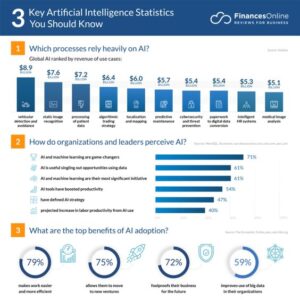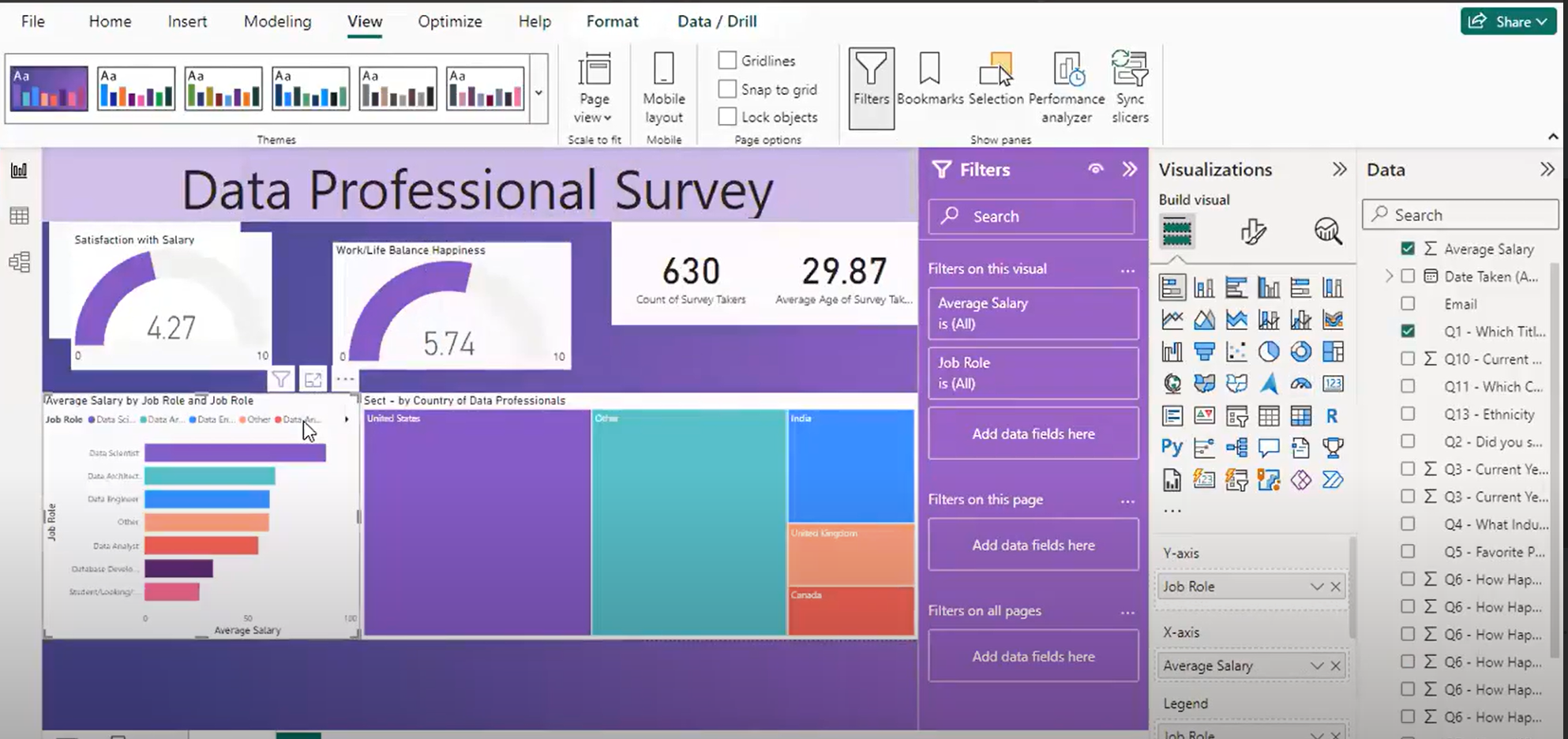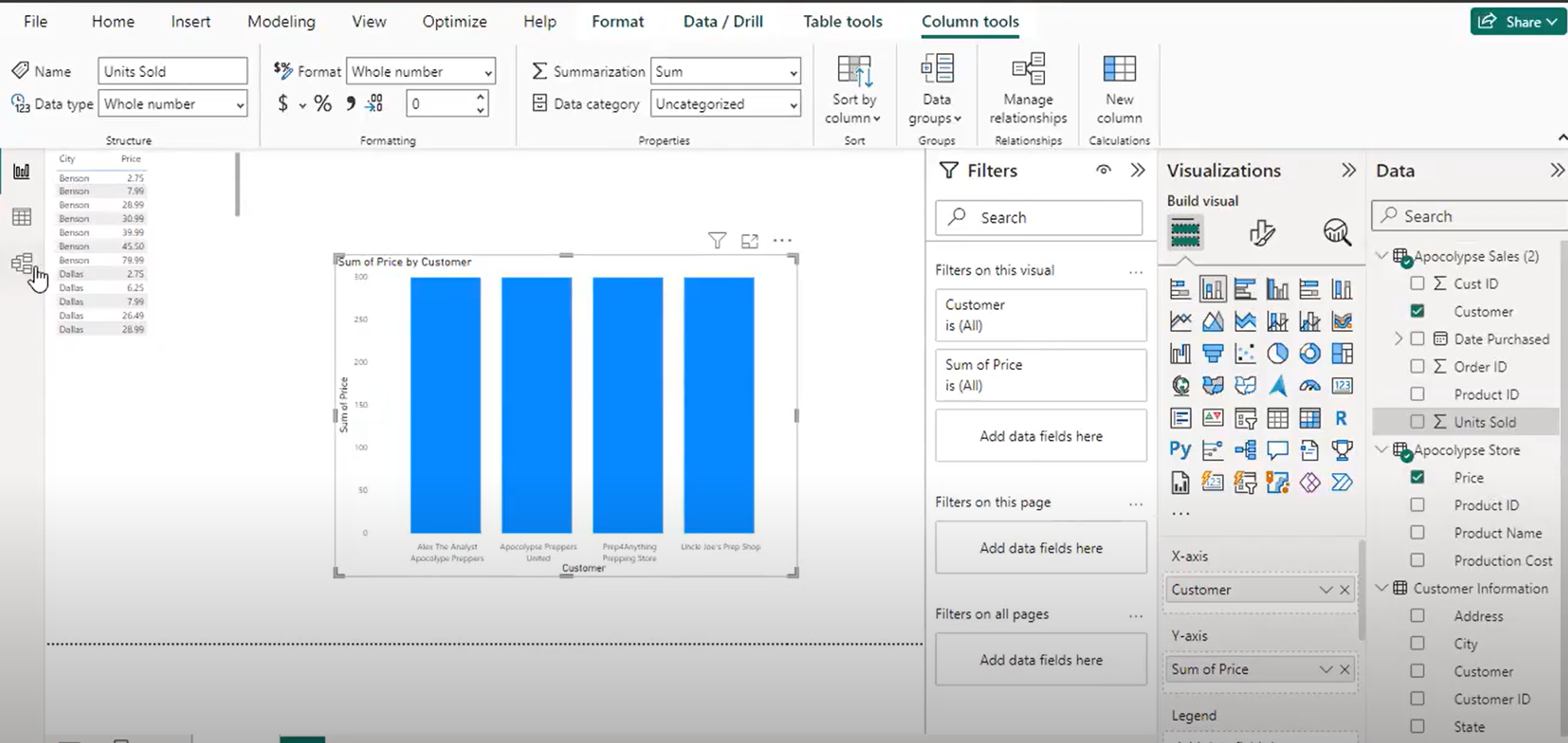artificial intelligence (AI), the ability of a digital computer or computer-controlled robot to perform tasks commonly associated with intelligent beings. The term is frequently applied to the project of developing systems endowed with the intellectual processes characteristic of humans, such as the ability to reason, discover meaning, generalize, or learn from past experience. Since the development of the digital computer in the 1940s, it has been demonstrated that computers can be programmed to carry out very complex tasks—as, for example, discovering proofs for mathematical theorems or playing chess—with great proficiency. Still, despite continuing advances in computer processing speed and memory capacity, there are as yet no programs that can match human flexibility over wider domains or in tasks requiring much everyday knowledge. On the other hand, some programs have attained the performance levels of human experts and professionals in performing certain specific tasks, so that artificial intelligence in this limited sense is found in applications as diverse as medical diagnosis, computer search engines, and voice or handwriting recognition.
AI Facts and Figures
According to Statista, revenue from the artificial intelligence (AI) software market worldwide is expected to reach 126 billion dollars by 2025.
As per Gartner, 37% of organizations have implemented AI in some form. The percentage of enterprises employing AI grew 270% over the past four years.
According to Servion Global Solutions, by 2025, 95% of customer interactions will be powered by AI.
A recent 2020 report from Statista reveals that the global AI software market is expected to grow approximately 54% year-on-year and is expected to reach a forecast size of USD $22.6 billion.
Average salary for AI/ML engineers by experience(Annual):
0-1 years: $126,393
1-3 years: $135,091
4-6 years: $141,066
7-9 years: $145,954
10-14 years: $154,438
15+ years: $164,899

APPLICATIONS OF ARTIFICIAL INTELLIGENCE IN OUR DAY-TO-DAY LIVES
- APPLICATIONS OF ARTIFICIAL INTELLIGENCE IN EDUCATION
Although the education sector is the one most influenced by humans, Artificial Intelligence has slowly begun to seep its roots in the education sector as well. Even in the education sector, this slow transition of Artificial Intelligence has helped increase productivity among faculties and helped them concentrate more on students than office or administration work.
Some of these applications in this sector include:
Administrative Tasks Automated to Aid Educators
Artificial Intelligence can help educators with non-educational tasks like task-related duties like facilitating and automating personalized messages to students, back-office tasks like grading paperwork, arranging and facilitating parent and guardian interactions, routine issue feedback facilitating, managing enrollment, courses, and HR-related topics.
Creating Smart Content
Digitization of content like video lectures, conferences, and text book guides can be made using Artificial Intelligence. We can apply different interfaces like animations and learning content through customization for students from different grades.
Artificial Intelligence helps create a rich learning experience by generating and providing audio and video summaries and integral lesson plans.
Voice Assistants
Without even the direct involvement of the lecturer or the teacher, a student can access extra learning material or assistance through Voice Assistants. Through this, printing costs of temporary handbooks and also provide answers to very common questions easily.
Personalized Learning
Using top AI technologies, hyper-personalization techniques can be used to monitor students’ data thoroughly, and habits, lesson plans, reminders, study guides, flash notes, frequency or revision, etc., can be easily generated.
- APPLICATION OF ARTIFICIAL INTELLIGENCE IN CONTENT CREATION
CONTENT GENERATION
This requires little effort from the content creator. AI tools that can generate content that will drive in traffic to your blog or page are available at the moment – you only need to describe the kind of content that you wish for it to create and it does that for you. This tool is extremely useful to business owners.
CONTENT WRITING
AI tools like Grammarly provides real-time suggestions for correctness, clarity and it also comes in handy for every writing content you want to create from Slack messages to emails. This way, you can write your contents without worrying over “Typos.”

- APPLICATIONS OF ARTIFICIAL INTELLIGENCE IN NAVIGATION
Based on research from MIT, GPS technology can provide users with accurate, timely, and detailed information to improve safety. The technology uses a combination of Convolutional Neural Network and Graph Neural Network, which makes lives easier for users by automatically detecting the number of lanes and road types behind obstructions on the roads. AI is heavily used by Uber and many logistics companies to improve operational efficiency, analyze road traffic, and optimize routes.
- APPLICATIONS OF ARTIFICIAL INTELLIGENCE IN TIMING
AI is also being used in timing. GPS-controlled watches are also popular – this way, you can travel across different time-zones without the trouble of having to set your time to adjust. Your watch automatically resets itself to the correct time using your GPS. This is made possible through AI.

- APPLICATIONS OF ARTIFICIAL INTELLIGENCE IN CURBING ONLINE ABUSE
The incorporation of AI into social media platforms has significantly reduced the rate of social media abuse and racism as models are trained to sanction users who makes use of the “N” word.
WHY ARTIFICIAL INTELLIGENCE SHOULD BE ON YOUR WATCH LIST FOR 2023
There’s been a lot of talk about how the pandemic has accelerated digital transformation and digital innovations in general, but some of the biggest changes could come from AI- and ML-powered automations. These technologies are essential for any institution looking to evolve into a data-driven entity that is guided by accurate information, not guesswork or assumptions.
Make no mistake – AI and ML were important long before the pandemic. In November 2019, just a few months before COVID-19 swept the globe, Accenture issued a warning to corporations of all sizes: Failure to scale AI could put most (75%) of them out of business. Organizations are spending billions of dollars to keep up, and a large part of that is being driven by data. The bottom line isn’t the only thing at stake – PwC estimates that AI and the data from it will contribute $15.7 trillion to the global economy by 2030.
When paired with human expertise, AI can help businesses make more intelligent data-driven decisions and reduce forecasting errors by as much as 50%. This is yet another reason why, along with its machine learning counterpart, AI will gain more traction and utilization in 2023. Businesses can’t afford to wait and must consider AI and ML when exploring new technology investments. While there are elements of automation that have already been implemented in modern business intelligence (BI) systems, organizations should look for a solution in which AI and ML are front and center. In doing so, they will be better equipped to become data-led organizations that benefit from and grow with real-time insights.







